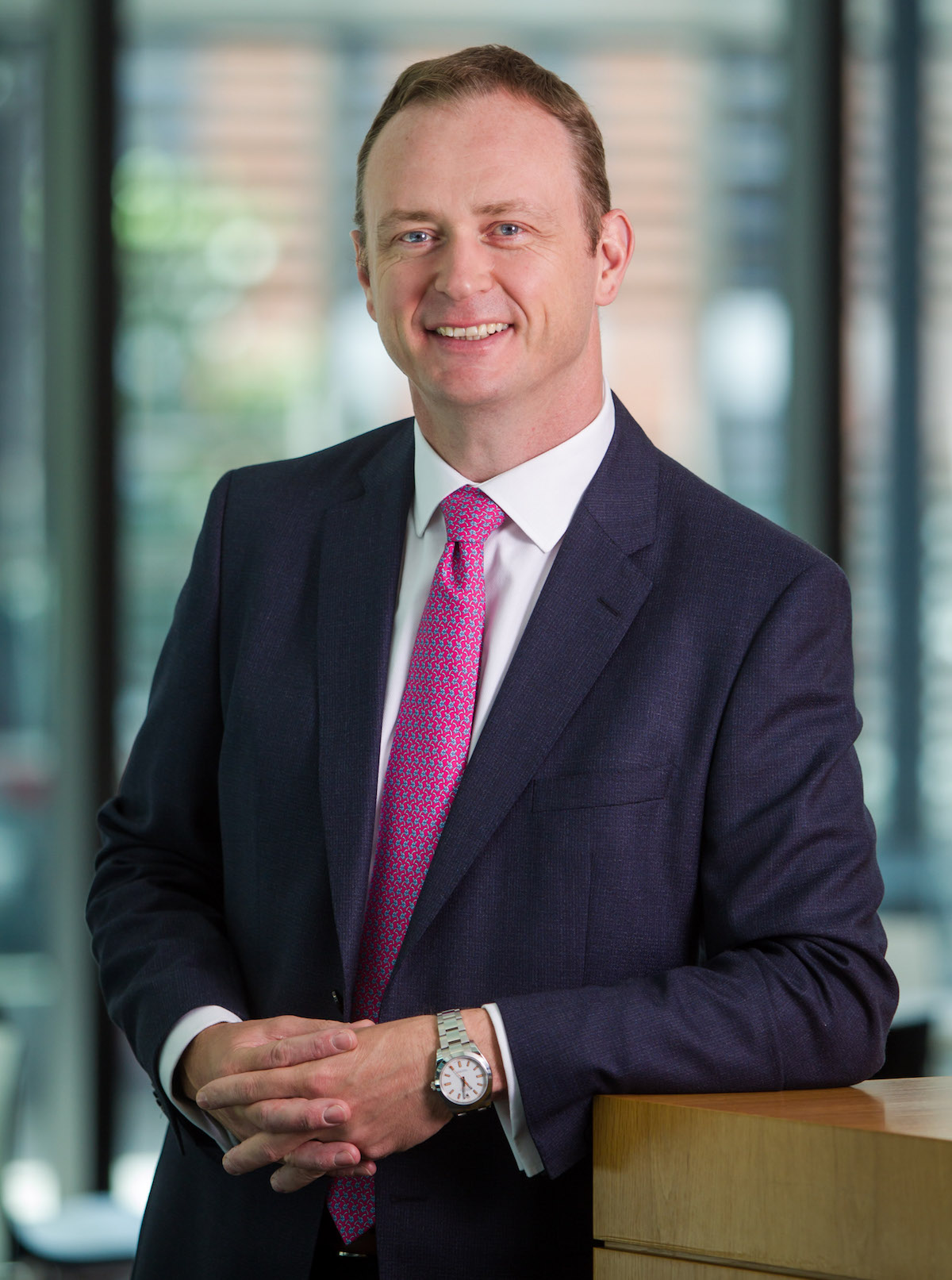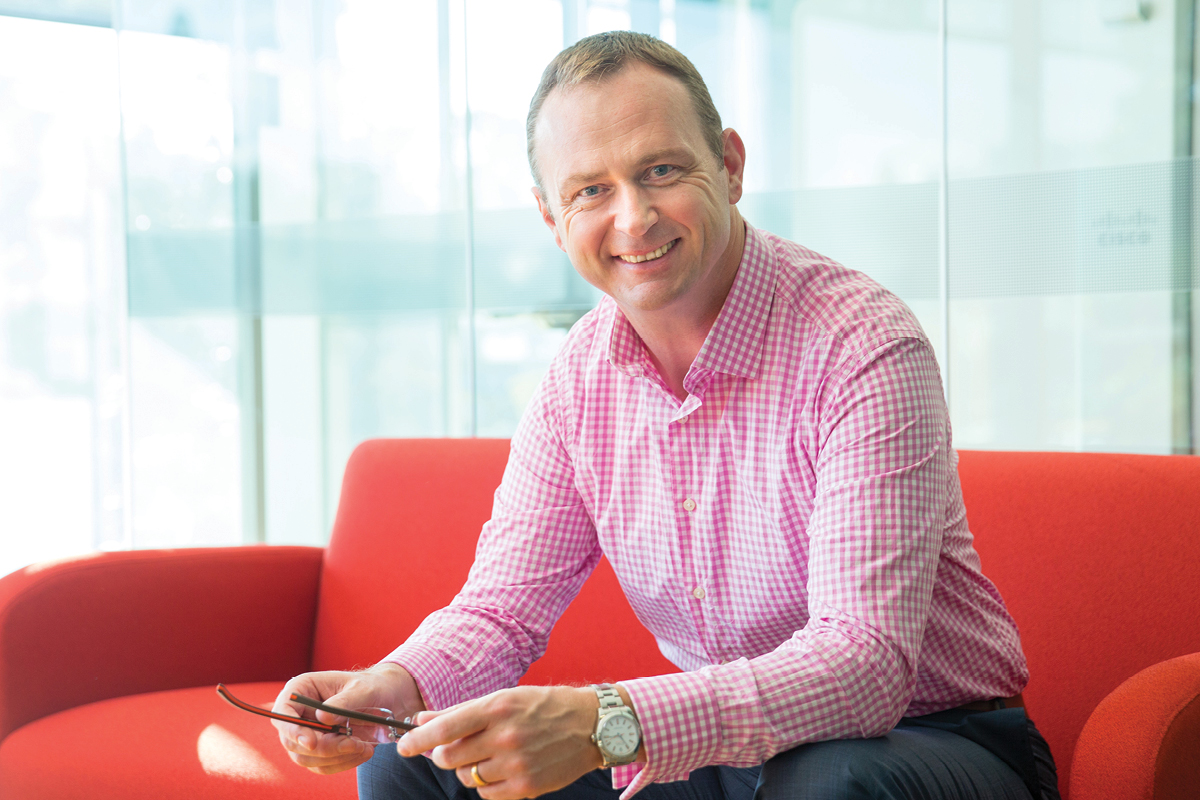There’s no doubting the buzz surrounding Energy Queensland. Apart from the new name, which automatically conjures up images of light and warmth, the merged government companies of Energex and Ergon Energy are now Australia’s largest distributor of electricity.
Covering 1.7 million square kilometres, stretching from Tweed Heads to Torres Strait and from Brisbane to Birdsville, the company employs around 7,400 staff based in 100 locations. Its wavy green-and-yellow logo reflects the elasticity of the sunshine state, characterised by stunning, rugged coastlines and enormous expanses of arid outback.
David Smales is full of energy
The 2016 merge eliminated duplication in areas of administration, shared services, boards, management and corporate costs and is expected to save the government more than $500 million over the next 5 years. Based in Townsville, Energy Queensland is led by CEO David Smales, who boasts an impressive record in blue-chip energy companies, including Origin, and Drax and Centrica in the UK.
He began his 30-plus-year career as a 16-year-old apprentice working in the power industry, moving through junior positions to leadership roles in energy companies, completing an MBA en route. He’s a leader who keenly appreciates that his responsibility is more than just connecting Queenslanders to power; it’s also understanding the emotional connection.

Energy Queensland powers through disaster
It’s dealing with the devastation a flood, cyclone or drought can bring to an area 7 times the size of Great Britain, with more than half its near 5 million population living outside the greater metropolitan area of its capital, Brisbane. Cyclone Debbie was one such force of nature. An overwhelming Category 4, she struck Queensland in March this year, leaving more than 60,000 Queenslanders without power.
However, Energy Queensland was ready for the carnage Debbie would trigger, and preparation began days before she hit land. “We put in a phenomenal amount of additional effort,” David remembers. “We have great technology these days for tracking meteorology and can see days before when a cyclone’s coming. We deployed hundreds of people into the field prior to Debbie hitting, north and south of the cyclone area.”
“We had response teams and management structures; we installed generation equipment and assessed roads prone to flooding so we could plan access to people and equipment. There’s a lot of analysis and a lot of preparation to be done before the event; then, as soon as the cyclone passes, we’re straight into damage assessment and then execution mode.”
On top of new technology
While responding to Queensland’s fickle forces of nature and maintaining everyday electricity needs, Energy Queensland is also focused on keeping up with the rapid pace of change in technology, including more home-battery storage systems, which use a mix of solar and grid power and a battery to store and use the sun’s power at night, saving costs.

The company is also investing $3 million in superfast electric car chargers in regional Queensland, which will fully charge a vehicle in around 30 minutes with enough power to drive 250 kilometres. “There are a lot more things coming onto the market, too,” adds David.
“Home energy-management systems using technology to optimise and reduce costs of electrical consumption, where information will be provided to householders so they can see exactly where they’re spending their money – leaving the lights or television on, for example – and even alerting them to defects in appliances that may affect their bills.”
One of the things with Australia is we have more solar panels per capita than anywhere else in the world.
“There are also all sorts of technology coming out to optimise the grid, even to the extent of people being able to trade energy between houses. If you’ve got solar panels and you’re producing more than you need, you can supply that excess to one of your neighbours and have them pay for it. One of the things with Australia, particularly in Queensland, is that we have more solar panels per capita than anywhere else in the world. All eyes are on us.”
Training the next generation of power players
David is aware of the increased pressure to not only meet but exceed customer expectations and believes the strong track records of the two companies combine to make Energy Queensland a predominant force, with training a priority.
“One of the benefits of bringing Energex and Ergon together is the multiplication of the great career paths available. We don’t have to go very far at all in this organisation to come across people who have been in the organisation 20, 30, 40 years enjoying very strong careers. We have a large training department and take on enormous numbers of apprenticeships. There’s nothing to stop a young person who has just left school starting with Energy Queensland and ending up in my job.”

